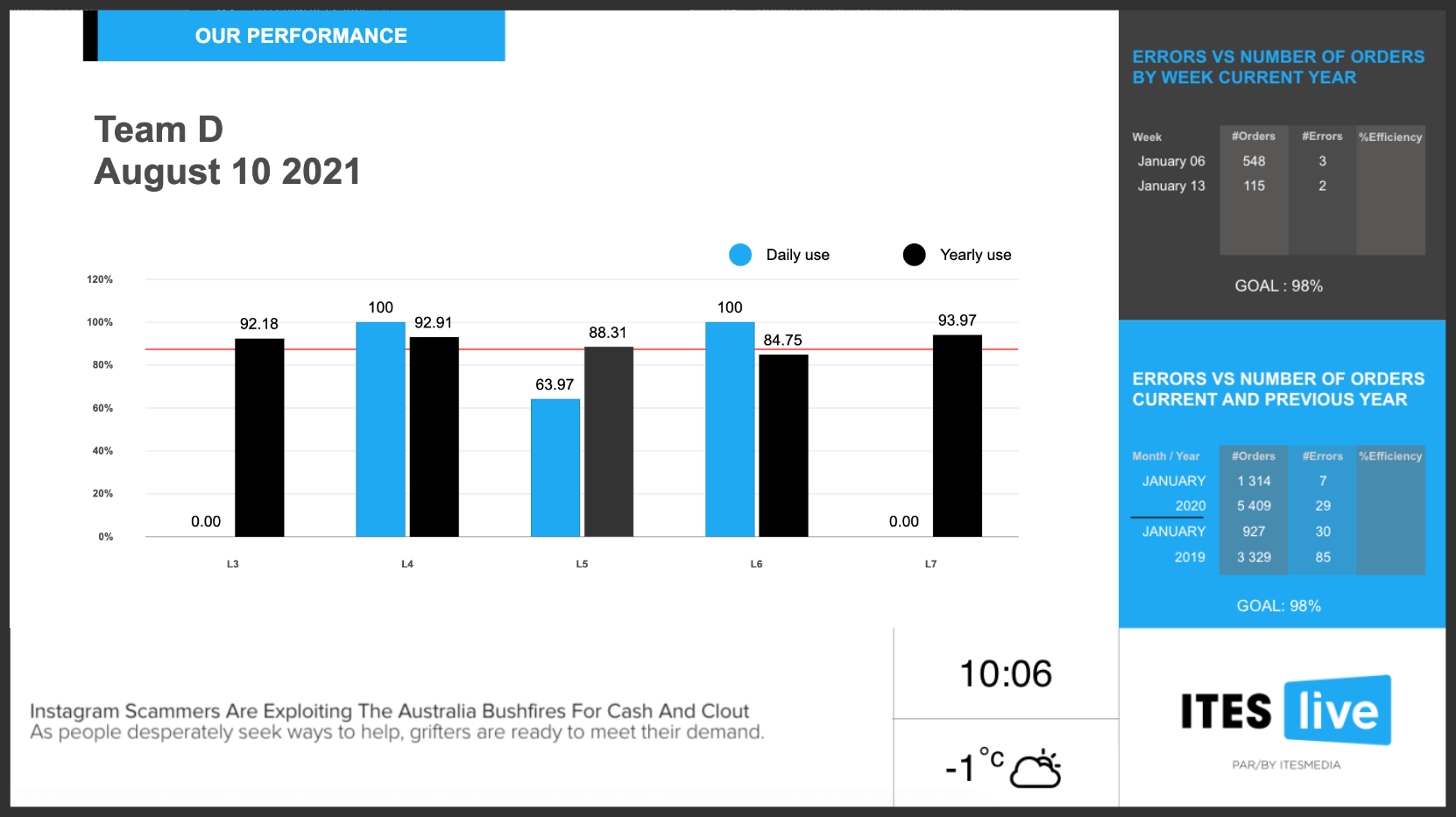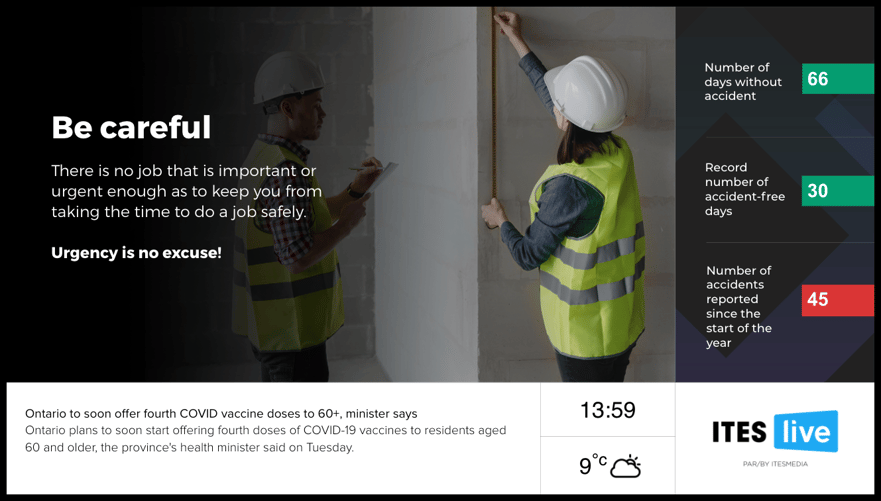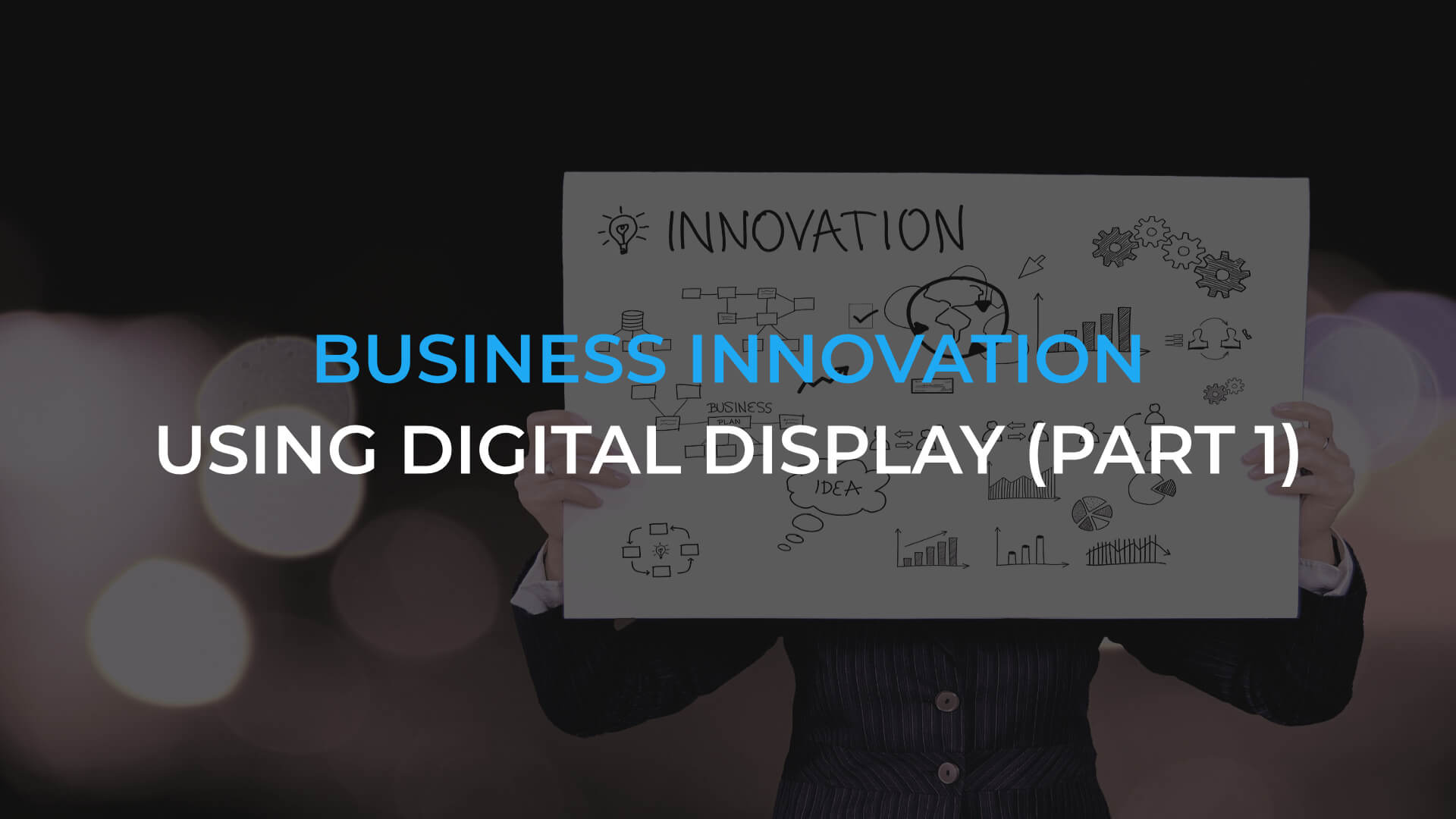This article is the first in a series of two about business innovation using digital display. Communication is a key element for any company that wants to stand out from the rest. Yet most of them still use old methods and don’t want to take advantage of the new technologies now available to communicate with their employees. This article gives you 5 different ways to improve communication within your company using digital display.
1. Communicating performance indicators
As we saw in our last article, communicating performance indicators is important. In addition to all the benefits mentioned, it should not be forgotten that communicating performance indicators shows a great deal of transparency towards employees. More and more companies are seeing improvements in employee commitment and productivity as a result of sharing certain information about the company. An employee who feels involved in the business will perform much better in the long run.

2. Preventing accidents
You can also use your screens for prevention purposes. Provide employees with a variety of tips to help them work effectively without getting injured. Here is an entire article talks about this subject. You also want to provide numbers and statistics to your employees so that they feel more concerned. Being aware of accidents and "near-misses" that happened in the past will most likely encourage employees to be more careful in their way of working. Don’t forget that the costs related to an accident at work are very high, more than $ 38,000 per accident according to the IRSST. That is one more reason to innovate in our ways of preventing them.

3. Display information in real time
Dynamic digital display also innovates by its speed. You can now broadcast messages in real time to your employees. You can use your screens to disseminate information that needs to be communicated quickly, such as water damage in one of your factories or an event coming up. These messages will be communicated dynamically, using the screen, and are most likely to have an impact than a sheet on the wall or a document distributed to each department.
In the same vein, I advise you to read this article: 5 good reasons to use dynamic digital signage in a factory.
4. Switching from paper to digital
Now, let’s talk about the transition from paper to digital. Today, everything can be done using digital. In addition of doing your part for the environment by reducing your company's paper consumption, you increase your chances of getting your message across. A paper communication takes a while to spread (printing and distribution delays) and is static. You will not reach a maximum number of people because they will read the message only once before discarding the paper and no longer being exposed to what you had to communicate.
Using your screens, you can expose your audience more than once, unlike paper. You can customize your message. Make it attractive, captivating, and flashy so that your employees can notice it. A screen is much more dynamic than a sheet of paper; it allows you to add color, videos, photos, animations, etc. Use your screens to their full potential to maximize the efficiency of your message!
5. Providing educational content
Your screens can also provide educational content related to your business sector. You can adapt and display your message in different forms: questions and answers, quizzes, video capsules, fun facts, etc. This type of communication exposes your employees to ongoing training, in a much more interesting way than the usual formations. Workers will be more focused and receptive to the displayed messages if they feel they are learning something quickly. You know employees are interested to the content if they are constantly taking a look at the screens.
The best way to communicate in your company is by adapting to new trends. Communicating with your employees is paramount to the good health of your company. Digital display is an essential tool to reduce your paper consumption and reach all of your employees very easily. With your screens, your only limits are your imagination and your creativity!
Read the second part of this article by following this link









